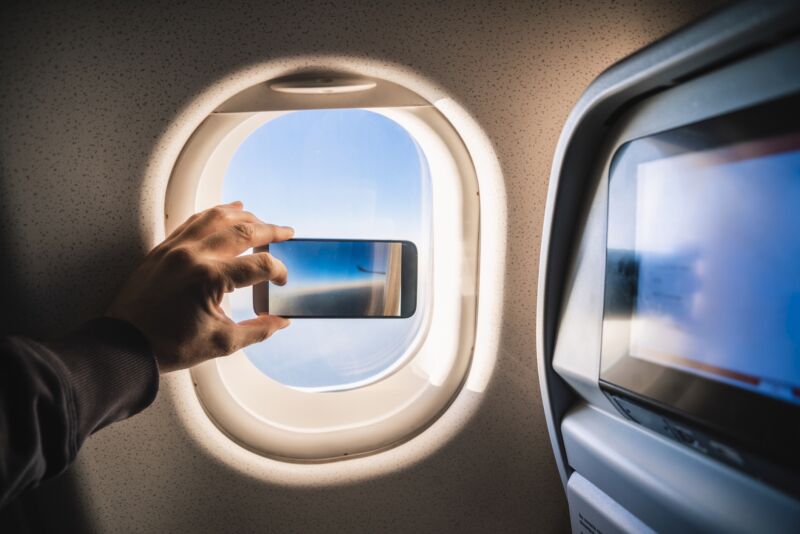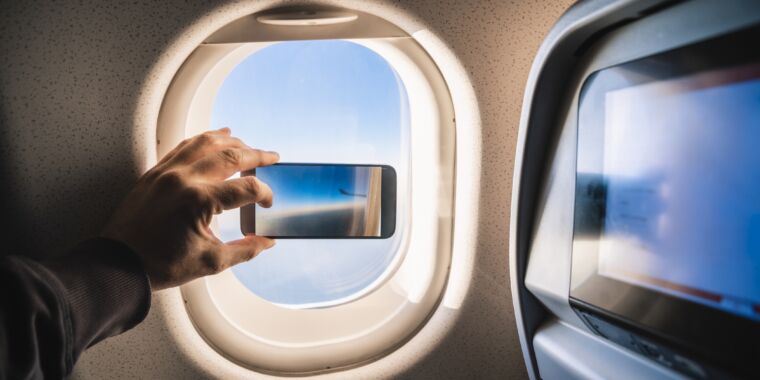
Getty Images | Marco Bottigelli
Update at 11:20 pm ET: AT&T and Verizon reversed course on Monday night, announcing that they agreed to the request for a two-week delay of their 5G rollouts on C-Band frequencies, according to reports from several news organizations. “At Secretary [of Transportation Pete] Buttigieg’s request, we have voluntarily agreed to one additional two-week delay of our deployment of C-Band 5G services,” an AT&T spokesperson said, according to CNN. “We also remain committed to the six-month protection zone mitigations we outlined in our letter. We know aviation safety and 5G can co-exist and we are confident further collaboration and technical assessment will allay any issues.”
Verizon also confirmed to news organizations that it agreed to the delay, despite both carriers rejecting the request from Buttigieg and the Federal Aviation Administration yesterday. While the two-week delay applies nationwide, it isn’t clear whether AT&T and Verizon will agree to the FAA’s request for longer delays in areas surrounding airports.
Original story as published on January 3, 2022 at 2:50 pm ET follows:
AT&T and Verizon yesterday rejected a Federal Aviation Administration request to further delay a 5G rollout on C-Band frequencies but said they will adopt one of the world’s “most conservative” power limits near airports for six months after the planned January 5 deployment. This is in addition to other voluntary limits the carriers recently announced even though it has been almost two years since the Federal Communications Commission determined that use of the spectrum should not interfere with properly designed airplane altimeters.
“Specifically, for six months, until July 5, 2022, we will adopt the same C-Band radio exclusion zones that are already in use in France, with slight adaptation to reflect the modest technical differences in how C-Band is being deployed in the two countries,” the carriers said in yesterday’s letter. “That approach—which is one of the most conservative in the world—would include extensive exclusion zones around the runways at certain airports. The effect would be to further reduce C-Band signal levels by at least 10 times on the runway or during the last mile of final approach and the first mile after takeoff.”
The exclusion zones in France are 910×2100 meters, the letter said. AT&T and Verizon said they will use bigger exclusion zones with “an additional 540m on all four sides to accommodate” the higher power levels permitted in the US.
The carriers noted that “US aircraft currently fly in and out of France every day with thousands of US passengers and with the full approval of the FAA,” and that the “laws of physics are the same in the United States and France. If US airlines are permitted to operate flights every day in France, then the same operating conditions should allow them to do so in the United States.”
Meanwhile, a group representing major airlines sent a letter to the FCC threatening a lawsuit and claimed that “thousands of flights” could be diverted or canceled every day due to interference from 5G transmissions. But the spectrum is already being used for 5G in nearly 40 other countries, and the FAA admitted there are no “proven reports of harmful interference” to altimeters.
Buttigieg on FAA’s side
The AT&T/Verizon letter was a response to a December 31 letter from FAA Administrator Steve Dickson and US Secretary of Transportation Pete Buttigieg. Dickson and Buttigieg asked AT&T and Verizon to delay all commercial C-Band service for another two weeks, until January 19, and to wait for the aviation industry to conduct further analysis before deploying 5G on the C-Band near airports.
AT&T and Verizon previously agreed to a one-month delay of the deployment that was originally scheduled for December 5, 2021. In yesterday’s letter, they objected that the new FAA/DOT request “asks that we agree to transfer oversight of our companies’ multi-billion dollar investment in 50 unnamed metropolitan areas representing the lion’s share of the US population to the FAA for an undetermined number of months or years.”
The FCC approved 5G transmissions in the C-Band in February 2020, while requiring power limits as well as a 220 MHz guard band that will remain unused to protect altimeters. AT&T and Verizon then spent a combined $69 billion to purchase C-Band spectrum licenses from 3.7-3.98 GHz. The radio altimeters used to determine airplane altitudes rely on spectrum from 4.2 GHz to 4.4 GHz.
The guard band is effectively even bigger in 2022 because carriers have said they don’t plan to deploy between 3.8 and 3.98 GHz until 2023.
Airlines plan to sue if FCC doesn’t act
Airlines for America, a trade group that represents the major US airlines, filed an emergency petition on December 30 asking the FCC to stop C-Band deployment near airports. The group said if the FCC doesn’t act by noon ET on January 3, the group “will be forced to seek judicial or other relief to avoid the immediate and unacceptable safety risks to its members’ operations from interference to radio altimeters.”
The emergency petition claimed that interference from the C-Band “will cause irreparable harm and jeopardize the function of critical aircraft safety systems, which in turn threatens to divert or cancel thousands of flights every day, thus disrupting millions of passenger reservations, causing substantial disruptions for air crews, further interrupting the U.S. and global supply chains, and eroding the safety margin that the industry and the Federal Aviation Administration have worked so hard to achieve.”
“A4A is playing stupid games, because they waited until the FCC closed on Dec. 30 to file. Since the FCC was closed Dec. 31, and A4A says they will appeal today [Monday], this gives FCC no time to review or respond to stay petition,” wrote Harold Feld, a telecom attorney who is senior VP of consumer advocacy group Public Knowledge.
Six former FCC chairs last month criticized the FAA’s fight against C-Band deployment, saying that the “FAA position threatens to derail the reasoned conclusions reached by the FCC after years of technical analysis and study.”
